Search Results
Showing results 141 to 160 of 363
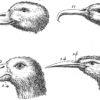
Bird Beak Buffet
Source Institutions
In this classic activity, learners investigate natural selection by becoming birds foraging for food on an island.
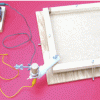
Shake Table
Source Institutions
This activity guide includes instructions on how to build a "Shake Table" by mounting an eccentric mass (off center) on the shaft of a small dc motor.

Kid Moon: Splat!
Source Institutions
In this activity, learners model ancient lunar impacts using water balloons.

Pom Pom Potential
Source Institutions
In this kinesthetic activity, learners move pom-pom "ions" across a membrane to simulate how an action potential is propagated along an axon.
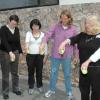
Let's Make a Supernova!
Source Institutions
This fun and simple hands-on astronomy activity lets learners explore what happens when a star explodes.
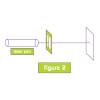
Forensic Science: Hair Sample Investigation
Source Institutions
This activity (on page 2 of the PDF under SciGirls Activity: Forensics) is a full inquiry investigation into how hairs from a crime scene are matched to suspects.
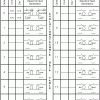
Evolutionstechnik or Selection and Variation in the Egyptian Origami Bird (Avis papyrus)
Source Institutions
In order to examine the random nature of mutations and natural selection, learners "breed" clutches of Egyptian Origami Birds (Avis papyrus) using random number generators (dice and coins) to mutate s

Seeing Is Believing
Source Institutions
This activity is designed to accompany the PBS documentary about African-American chemist "Percy Julian: Forgotten Genius." Learners look through two cups with small holes in them to simulate what it'

Artificial Intelligence: The Intelligent Piece of Paper
Source Institutions
This activity explores what it means for a computer to be intelligent and introduces the topic of what a computer program is and how everything computers do simply involves following instructions writ
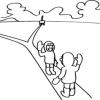
Ice Roads: Steiner Trees
Source Institutions
In this outdoor activity, learners use pegs (like tent pegs) and string or elastic to simulate drill sites and roads in Northern Canada.

Out of Sight: Remote Vehicle Activity
Source Institutions
In this robotics activity, learners drive a remote-controlled car through a course to learn the challenges faced while trying to operate a planetary rover.
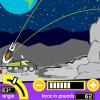
Planetary Rescue Squad
Source Institutions
This is an online Flash game where learners can experiment with ballistics and how to compensate for the varying levels of gravity found on the planets of our Solar System.
Create a Mangrove Tree
Source Institutions
In this group activity, learners will explore the characteristics, functions and uniqueness of the mangrove tree.

What-a-cycle
Source Institutions
In this activity, learners act as water molecules and travel through parts of the water cycle to discover that it is more complex than just water moving from the ground to the atmosphere.
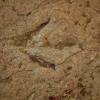
Dinosaur Footprints & Fossils
Source Institutions
In this activity, early learners simulate fossil prints in play dough or clay.

Population Study Game: Oh, Deer!
Source Institutions
In this activity, learners model a population of deer and see how the number of deer changes over time.

Investigating the Insides
Source Institutions
In this activity, learners work in teams to investigate the composition of unseen materials using a variety of tools.
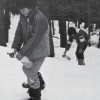
Scent Tracking
Source Institutions
In this wintertime outdoor activity, learners role play wolves tracking their prey by following scented trails.
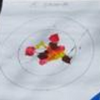
Moon's Long History: Impact Paintings
Source Institutions
In this activity, pairs of learners model how scientists use craters to determine the ages of lunar surfaces. One partner keeps time while the other creates a painting for the other to interpret.

Jumpin' the Gap
Source Institutions
In this simulation of synapses, learners act out communication at the neural level by behaving as pre-synaptic vesicles, neurotransmitters, post-synaptic receptors, secondary messengers and re-uptake
